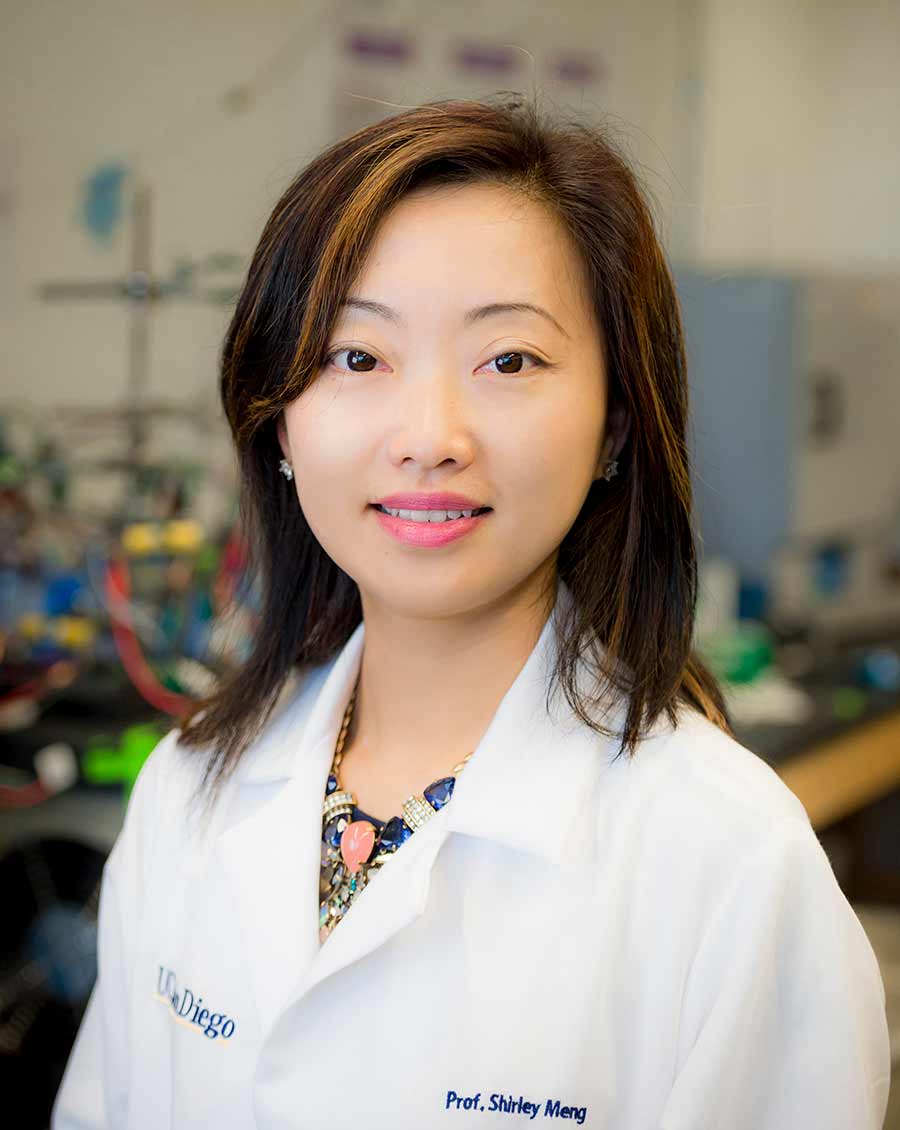Nanoengineer Honored for Fundamental Research on Battery Materials
Published Date
By:
- Liezel Labios
Share This:
Article Content

Shirley Meng
University of California San Diego nanoengineering professor Shirley Meng is the recipient of the 2016 Charles W. Tobias Young Investigator Award from the Electrochemical Society (ECS). The award recognizes a young scientist or engineer who has contributed outstanding theoretical or experimental work in the fields of electrochemistry, electrochemical engineering, or solid-state science and technology.
Meng, the director of UC San Diego’s Sustainable Power and Energy Center, was recognized for her work to advance fundamental understanding of battery materials at the atomic level and at the interfaces. She was honored with the award at the ECS Fall Meeting this week in Honolulu, HI.
A goal of Meng’s research is to discover and develop high performance materials for next-generation energy storage and conversion technologies. Her team at the Laboratory for Energy Storage and Conversion uses advanced imaging and computational techniques to explore the chemistries and mechanisms underlying materials for lithium-ion batteries, flow batteries, aqueous batteries and solid-state batteries, to name a few.
As nanoengineers and material scientists, we view batteries as atomic structures in which matter is moving around, resulting in the making and breaking of chemical bonds, Meng explains. To develop new battery technologies, we need to understand where the atoms are, how to control them, and how to design and build the right structures, she says.
In a study published in Science last year, Meng and coworkers demonstrated new strategies for visualizing how cathode materials behave during battery operation. They used a powerful X-ray imaging technique combined with new data analysis algorithms to gain insights—at the nanoscale level—on why a particular cathode material, called an LNMO spinel, performs well at higher voltages than other cathode materials. The findings could help researchers design cathode materials that operate at high voltage levels, an attribute that is crucial for batteries used in high-power applications such as electric cars.
Recently, Meng co-led a study demonstrating a new way to increase the robustness and energy storage capability of a particular class of “lithium-rich” cathode materials. By controlling the oxygen activity, researchers increased the energy density in the cathode material by up to 30 to 40 percent.
Meng’s research is motivated by her environmental passion, particularly in addressing climate change. She shares her views in an article by the Electrochemical Society:
“I realized that enabling electric cars is one of the keys to help with environmental sustainability issues. There is no reason why we should be burning all this fossil fuel with millions of cars,” Meng said.
In addition to electric cars, Meng points out that a green energy grid is also important to help achieve a carbon-neutral future.
“Sunlight is free for all of us. If we would like to make it an indispensable resource for humans, we need to figure out how to make large-scale energy storage happen,” she said.
Read the full ECS article here.
Share This:
You May Also Like
Stay in the Know
Keep up with all the latest from UC San Diego. Subscribe to the newsletter today.



